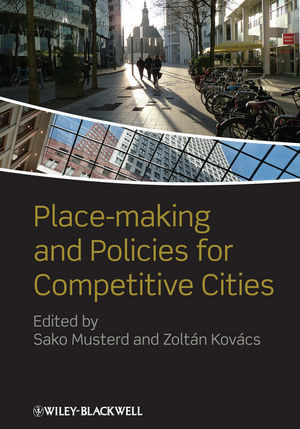

Most ebook files are in PDF format, so you can easily read them using various software such as Foxit Reader or directly on the Google Chrome browser.
Some ebook files are released by publishers in other formats such as .awz, .mobi, .epub, .fb2, etc. You may need to install specific software to read these formats on mobile/PC, such as Calibre.
Please read the tutorial at this link: https://ebookbell.com/faq
We offer FREE conversion to the popular formats you request; however, this may take some time. Therefore, right after payment, please email us, and we will try to provide the service as quickly as possible.
For some exceptional file formats or broken links (if any), please refrain from opening any disputes. Instead, email us first, and we will try to assist within a maximum of 6 hours.
EbookBell Team

4.3
38 reviewsUrban policy makers are increasingly striving to strengthen the economic competitiveness of their cities. Currently, they do that mainly in the field of the creative knowledge economy - arts, media, entertainment, creative business services, architecture, publishing, design; and ICT, R&D, finance, and law. This book is about the policies that help to realise such objectives: policies driven by classic location theory, cluster policies, ‘creative class’ policies aimed at attracting talent, as well as policies that connect to pathways, place and personal networks.
The experiences and policy strategies of 13 city-regions across Europe have been investigated: Amsterdam, Barcelona, Birmingham, Budapest, Dublin, Helsinki, Leipzig, Milan, Munich, Poznan, Riga, Sofia and Toulouse. All have different histories and roles: capital cities and secondary cities; cities with different economies and industries; port-based cities and land-locked cities. And all 13 have different cultural, political and welfare state traditions. Through this wide set of contexts, Place-making and Policies for Competitive Citiescontributes to the debate about the development of creative knowledge cities, their economic growth and competitiveness and advocates the development of context-sensitive tailored approaches. Chapter authors from the 13 European cities rigorously evaluate, reformulate and test assumptions behind old and new policies.
This solidly-grounded and policy-focused study on the urban policy of place-making highlights practices for different contexts in managing knowledge-intensive cities and, by drawing on the varied experiences from across Europe, it establishes the state-of-the-art for both academic and policy debates in a fast-moving field.
Content: